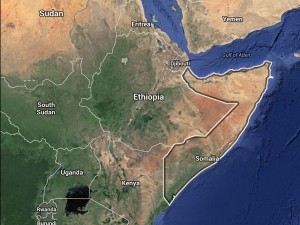
The theft, revealed in the fine print of the Department for International Development’s annual accounts, is likely to fuel concerns about how Britain is spending its foreign aid at a time of budget cuts at home.
The accounts describe the “theft between November 2011 and February 2012, by al-Shebab in southern Somalia, of DFID funded humanitarian materials and supplies from the offices and warehouses of partner organizations, to which DFID had provided funding to deliver projects and programs.”
“DFID’s partners had no prior warning of the confiscations being carried out and therefore had no time to prevent the loss by relocating goods,” the report said.
The loss, out of more than £80 million of aid allocated for Somalia in 2012-2013, appears in this year’s accounts because the investigation was only completed in the past 12 months.
Britain’s aid budget is protected from the government’s austerity program and has recently reached the United Nations target of 0.7 percent of gross national income, according to ministers.
Gerald Howarth, a lawmaker in Prime Minister David Cameron’s Conservative party, said the theft raised concerns about how this money was being spent.
“There is huge public concern at the relentless increase in overseas aid. Incidents like this, where British taxpayers’ money is diverted into people fighting against us, are not acceptable,” he told the Sunday Telegraph newspaper.
A spokesman for DFID said there were always risks working in unstable countries such as Somalia, but it was doing everything it could to stop such thefts from occurring.
“DFID works in some of the most dangerous places in the world, including Somalia, because tackling the root causes of poverty and instability there ensures a safer world and a safer UK,” he said.
“Working in conflict-affected and fragile states carries inherent risk. DFID does all it can to mitigate against this but, on occasion, losses will occur.”